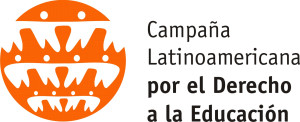Fernando Martinho
Education For Freedom: Dialogues And Actions For An Emancipatory Education That Guarantees Rights
October 22, 2018
What education do we need for the world we want? The Latin American Campaign for the Right to Education (CLADE), along with other civil society organisations, are seeking ways to answer this question, through dialogue and collective reflection on the meanings of education envisioned for the positive transformation of our realities and societies.
Towards “emancipatory education”
In 2012, in an education working group formed by civil society organisations to advocate for the human right to education within the framework of the Rio + 20 Summit debates, CLADE proposed an education that was capable of stimulating people to think about the political, environmental, economic and social problems of the global order in which we live. These reflections aimed to propose a different economic, cultural, and social order, to overcome inequalities and discrimination, for dignity and justice, based on the transformative potential of social subjects and organised groups of civil society [read here the position paper that we published back then].
Following this debate, from November 11 -14, 2016, we held the IX Regional Assembly of CLADE in Mexico City, themed “Emancipatory education that guarantees rights: Challenges for Latin America and the Caribbean.” 80 people from more than 16 countries, including specialists and representatives of national coalitions, regional networks, and international organisations members of CLADE, prompted debates on the situation of democracy and human rights in the region, as well as on the challenges and opportunities for the realisation of an emancipatory education that guarantees rights.
A long list of challenges
Among the challenges faced, the following stood out: the rise of conservative groups within the governments of different countries in the region, the homogenisation and instrumentalisation of educational systems, the privatisation of education, the criminalisation and repression of social protest, the different forms of discrimination and violence in schools, the undermining of the debate on gender in schools, the reduction of resources for education and other social rights, as well as the application of international and national standardised tests to measure educational quality, generating segregation, competition and inequality in education systems.
On the other hand, as a result of the debates of the meeting, the role of an emancipatory education that guarantees rights was raised to ensure the strengthening of critical thinking, capable of questioning and reflecting on the context, and pointing out ways to strengthen our democracies and overcome the inequalities and structural discriminations that mark our societies [click here to find out more].
Education for freedom: Dialogues and action for an emancipatory education
Deepening this dialogue and reflections is a pending task that is fundamental to reach levels of social, economic, political and environmental justice in the Latin America and Caribbean region. Thus, CLADE launched the regional mobilization titled “Education for freedom: Dialogues and action for an emancipatory education” on October 15, 2018 to invite citizens to discuss and reflect on the education we need for the world we want. The initiative is promoted within the context of the X Regional Assembly of CLADE, which takes place from October 22-26 in Bogotá, Colombia, themed “For an emancipatory education that guarantees rights”.
Through this campaign, CLADE wants to mobilise the population of Latin America and the Caribbean to advocate for an education capable of transforming the present and future of children, adolescents, young people, and adults, based on reflection, dialogue and critical thinking, and on the ability to question, discern, imagine and act for other possible worlds.
Related Content





